Post
A catch
Save a catch to start your fishing logbook. You will be able to to share it with the community if yo want!
A fishing trip
Post an ad to go fishing with other fishermen
Save a catch to start your fishing logbook. You will be able to to share it with the community if yo want!
Post an ad to go fishing with other fishermen
Share a thought, a question with the community
My favorite cities
×Join our 465 fishermen and our 1 cofisherman in Tarrant-Keyneston in Dorset. The fishing forecast is currently 2.5. The most caught fishes here are bleak fish, the tench fish, the dace fish and the strerlet fish . Come try the most famous fishing techniques like the pollack fishing with soft lure, fishing with bombette, gathering seafood by hand or support fishing for bass.
Our fishing forecast of Tarrant Keyneston indicates the best time to go fishing in this city.
Bleak Fish
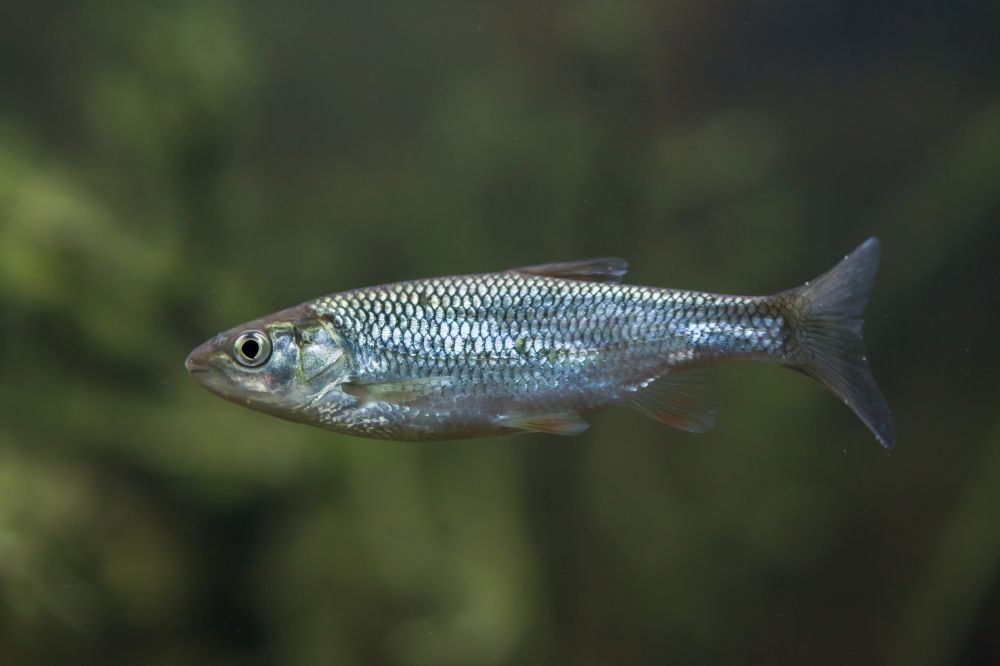
The Bleak fish is a Cyprinidae. In general, its average size is 10 to 15 cm and its weight is 15 to 50 g. However, some individuals can reach up to 60 g for a size of 25 cm. The bleak has a lifespan of 6-7 years. The spawning period is between April and August. It can lay up to 7000 spawns. You can fish bleak from June to September. This fish swims quite fast and offers a little resistance during the catch. The bleak is a fish with an elongated body that is very compressed laterally, allowing it to have a high velocity. The upper jaw is shorter than the lower jaw. The mouth of the bleak is oriented upwards (above), a typical character of fish that seek their food on the surface. The caudal fin is strongly indented and the caudal peduncle is thin. The dorsal fin is inserted behind the pelvic fins and has a shorter base than the dorsal fin. Its name refers to the bright white color of its scales, which gives the bleak a metallic sheen. Its back is darker greenish-blue, its sides are silvery white and its fins are pale grey. During the breeding season, nuptial tubers appear on the backs and sides of males and their fins become orange.
Bleak Fish is a famous fish you can catch in Tarrant Keyneston.The Tench fish
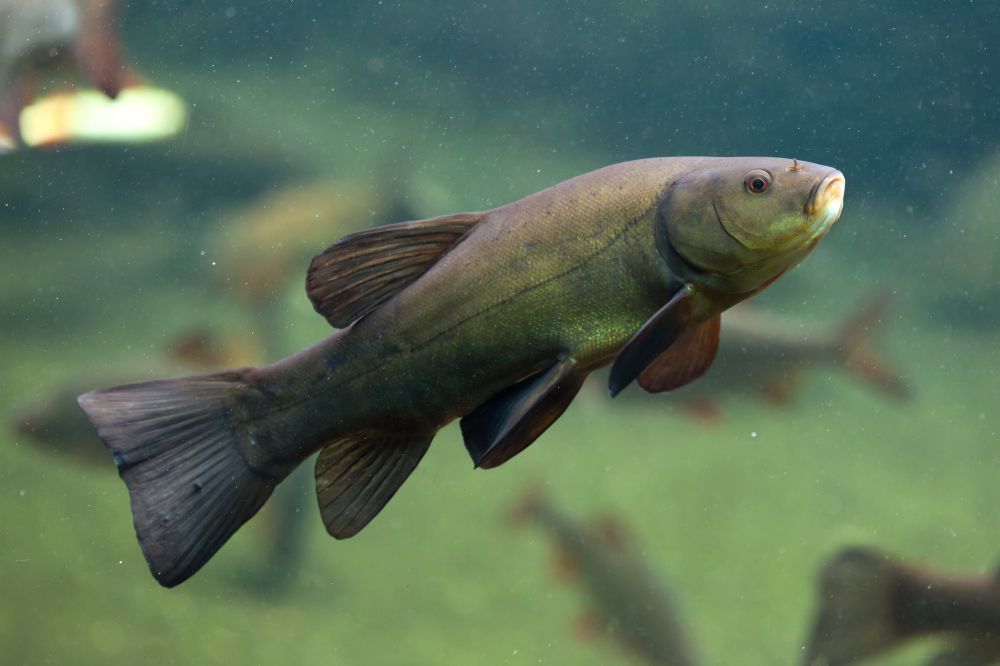
The Tench fish belongs to the Cyprinidae family. It rarely exceeds a length of 50 cm for a weight of 2 kg (maximum 70 cm for 8 kg). He can live up to 15 years. It breeds from May to August. Fertility is 300,000 to 800,000 eggs. It can be fished all year round. The Tench is a fish with a stocky body and compressed laterally. Its head is triangular with a small red-orange eye and a relatively long snout. Its mouth is terminal, small with thick lips and a well-developed barbell at each corner. Its characteristic caudal pedicle is rounded and short. Its skin is thick and viscous. Its scales are very small and covered with a thick layer of mucus. All fins are rounded. The caudal fin has 19 rays. The overall coloring is olive green (sometimes dark green or even almost black) with golden reflections on the ventral side. From the age of two years, males can be distinguished from females: they have ventral fins that reach the anus and the second ray of these fins becomes stronger than the others. It is a groundfish, rather shy, that can be found in small groups of maximum 4 individuals.
The Tench fish is a famous fish you can catch in Tarrant Keyneston.The Dace Fish
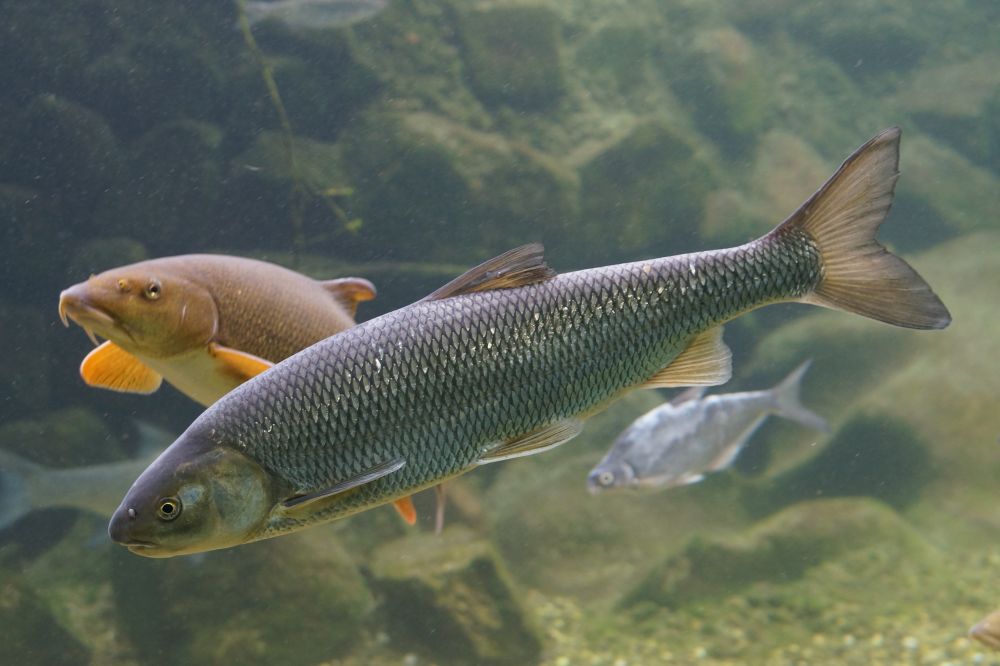
The Dace fish belongs to the Cyprinidae Family. The current size of the dace fish varies between 15 and 20 cm and weighs between 100 and 200 g. However, it can reach a maximum size of 40 cm for a weight of about 1 kg. The life span is usually 10 to 12 years, but it can reach 15 years. The breeding period is from March-April to May-June, depending on latitude. The female's fertility rate is 8,000 to 10,000 oocytes. The dace’s fishing season is open from June to March. This fish has a slender and streamlined body. The head is conical with a small and slightly split mouth, slightly inferior. The eyes are bordered with yellow. Fins are well developed. The caudal is indented, the dorsal fin is grey with 10-11 rays, located in the middle of the back. Pelvic bones are yellow with a concave posterior edge, anal and pectoral fins yellowish to orange. This species is suitable for rapid swimming in rough water. The scales are large (47 to 55 along the lateral line), silver-colored on the sides, greyer and greener dorsally, and white ventrally.
The Dace Fish is a famous fish you can catch in Tarrant Keyneston.The Strerlet fish
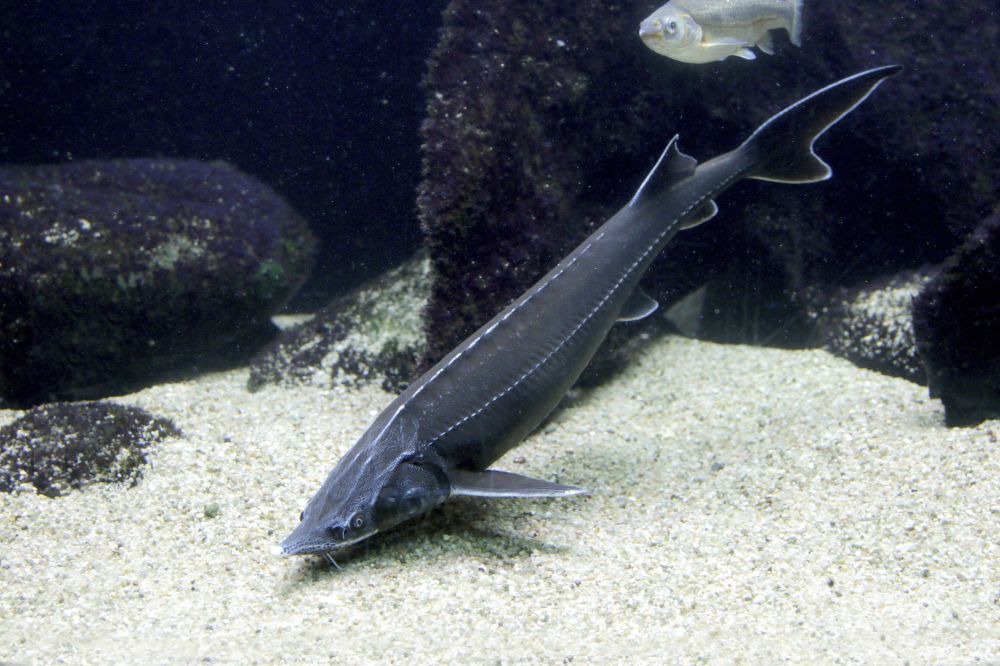
The Sterlet fish belongs to the Acipenseridae family. The Sterlet fish measures about 3.50m in length and weighs 300kg. It can live a hundred years. Females lay more than 800,000 eggs on the gravel. Spawning season is around May to June. It can be fished all year round. The back and sides are grey to beige, the ventral and lateral parts are lighter (almost white). Five longitudinal rows of large bone plates are arranged along the body. The upper lobe of the caudal fin is more developed than the lower lobe. The muzzle is narrow, pointed and raised upwards with four long fringed barbells. The lower lip is notched in the middle. The Sterlet fish has a protractile mouth placed on the underside of the head.
The Strerlet fish is a famous fish you can catch in Tarrant Keyneston.The Rudd fish
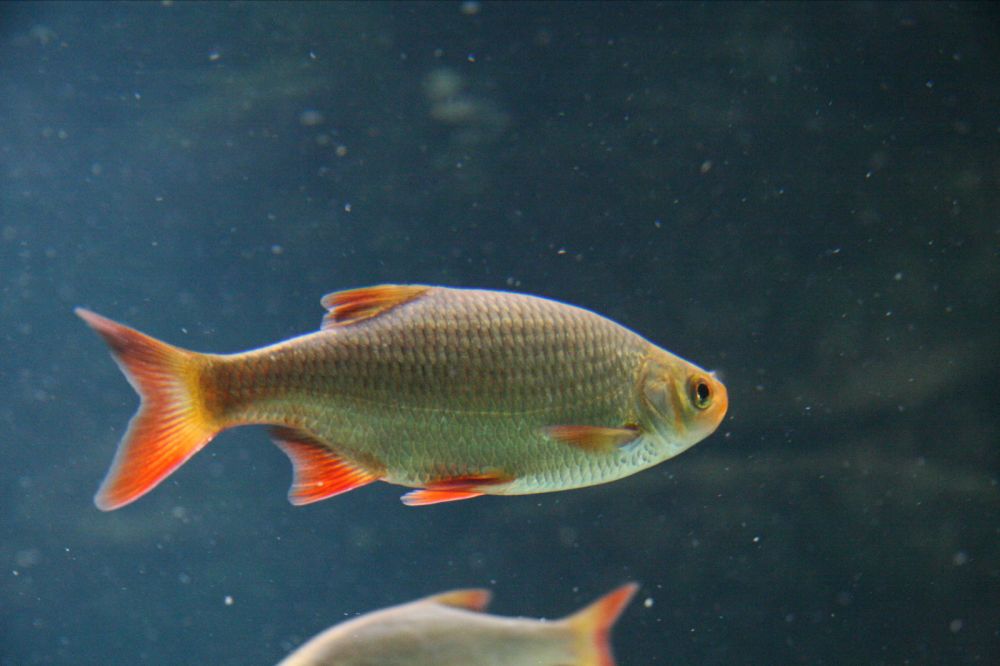
The Rudd fish belongs to the Cyprinidae family. The current size of the rudd fish is 15 to 30 cm for a weight of 0.5 to 1 kg. It can reach nearly 51 cm in height and weigh 2 kg. The rudd fish can live about 17 years. Egg laying is split and takes place from April to June. The female lays 100,000 to 200,000 eggs. Fishing for rudd is allowed all year round. It is easily identifiable by the diver: the silvery appearance of its body. A closer look at the position of the dorsal and ventral fins will then make the difference between the two species. If the ventral fins are placed further forward than the dorsal fin, it is the ratchet. The mouth, small, terminal, opens obliquely upwards. The back of the rattlesnake is brownish green, the sides and belly are silvery. The iris of the eyes is yellow with golden reflections. Dorsal, anal and pelvic fins are bright red in color.
The Rudd fish is a famous fish you can catch in Tarrant Keyneston.Our fishing forecast of Tarrant Keyneston indicates the best time to go fishing in this city.
Our fishing forecast of Tarrant Keyneston indicates the best time to go fishing in this city.
Our fishing forecast of Tarrant Keyneston indicates the best time to go fishing in this city.
